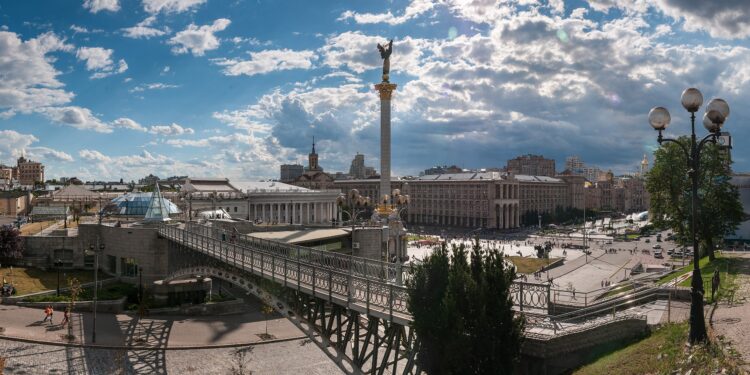Davyd Arakhamia is the leader of Zelensky’s party in the Ukrainian parliament and was among the delegation that took part in negotiations with Russia last year. In a recent interview with Ukrainian journalist Nataliia Moseichuk, he became the sixth public figure to confirm that the West opposed a peace deal at the time.
“When we returned from Istanbul,” he states, “Boris Johnson came to Kyiv and said that we will not sign anything with them at all, let’s just fight”. Arakhamia also says that “the goal of the Russian delegation” was to “pressure us into signing agreements so that we would accept neutrality”.
“This was the biggest thing for them,” he continues. “They were ready to end the war if we take neutrality … and give a commitment that we will not join NATO … The key point was this. Everything else is cosmetic, political seasonings like denazification, Russian-speaking population blah blah blah”.
As to why Ukraine did not agree to Russia’s demands, Arakhamia mentions two other factors aside from Boris Johnson’s visit: Ukraine’s constitution would have to be changed; and there was a concern that Russia might try to invade again.
Hence it can’t be inferred that Ukraine definitely would have signed the agreement but for the West’s refusal. For example, if Johnson had told the Ukrainians that the West will support whatever decision they take, they still might have opted not to sign the agreement. Of course, if he had encouraged or pressured them to sign it, they almost certainly would have done so.
Arakhamia’s remarks come amidst coverage that is increasingly gloomy about Ukraine’s prospects for total victory.
NBC News reports that “U.S. and European officials have begun quietly talking to the Ukrainian government about what possible peace negotiations with Russia might entail”, including “what Ukraine might need to give up to reach a deal”. (Though Zelensky disputed the report, claiming that “nobody puts pressure on us”.)
Writing in the Wall Street Journal, two fellows from the Carnegie Endowment for International Peace (a thinktank in Washington) argue that Western leaders have “indulged all too often in magical thinking” and “there should be no illusions that any possible combination of short-term steps will be sufficient to force Putin to abandon his war”.
Writing in Foreign Affairs, two fellows from the Council on Foreign Relations (another D.C. thinktank) argue that “that Ukraine and the West are on an unsustainable trajectory, one characterized by a glaring mismatch between ends and the available means”. They call for “a comprehensive reappraisal of the current strategy”.
And Konstantin Kisin, who describes himself as “someone who has been a vocal supporter of Ukraine’s fight for its sovereignty since the day it was invaded”, argues that “the time has come to end the war”. (I had a friendly debate with Kisin over Substack in September/October of last year, where I took the more dovish position.)
One of the points Kisin makes in his recent article is that “Ukraine has achieved what almost no one could have predicted when Putin first invaded”. Which is consistent with what historian Anatol Lieven has been saying since mid-March 2022, namely that Ukraine has in a sense “already won”. They successfully defended their capital, thereby retaining their independence and forcing the Russians to regroup for a more limited war in the East.
One of Western leaders’ key failings, Lieven notes, was not emphasising the scale of Ukraine’s early victory in their rhetoric. With a few exceptions, they’ve insisted that victory means liberating all of Ukraine’s territory. If, instead, they’d come out in April 2022 and trumpeted that ‘Ukraine has won the battle for its independence’, it would have been much easier to sell a peace deal to both Ukrainians and Westerners.
But the window for doing that has long since closed. Unless Ukraine regains the upper hand in the current war of attrition, any peace deal they sign will be tilted even more heavily toward Russian interests.
Stop Press: Vladimir Medinsky, who was among the Russian delegation that took part in negotiations with Ukraine last year, has claimed that “the conclusion of a peace treaty … was disrupted after a visit to Kiev not only by Boris Johnson, but also by representatives of the American State Department and the Pentagon”.














To join in with the discussion please make a donation to The Daily Sceptic.
Profanity and abuse will be removed and may lead to a permanent ban.